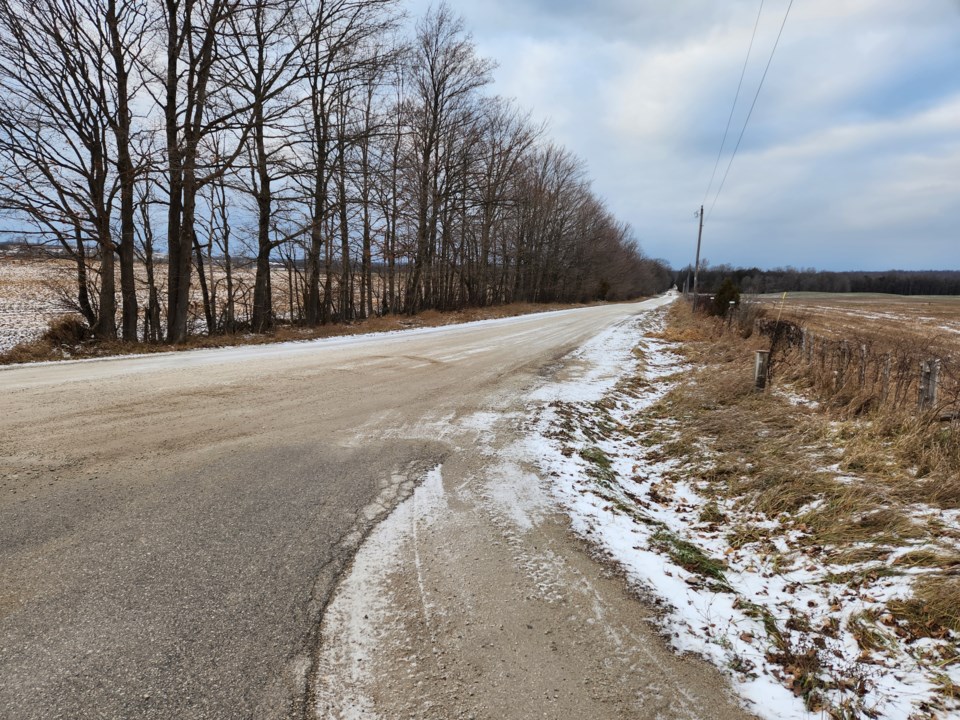Facing a double digit tax increase in 2024, Grey Highlands councillors have voted in favour of a reduction in the municipality’s gravel road maintenance budget.
At a committee of the whole budget meeting on Dec. 12, council voted in favour of a cost reduction option suggested by staff that will see the municipality continue to apply new aggregate to gravel roads every two years, but will reduce the amount of material going on the road.
In order to save $207,500 on gravel maintenance, council agreed to reduce the amount of gravel being put on each road every other year from 250 metric tonnes to 200 tonnes.
The resolution passed in a 5-2 vote with councillors Dan Wickens and Nadia Dubyk opposed.
Mayor Paul McQueen initially suggested the municipality switch to servicing gravel roads every third year in order to find cost savings. McQueen said a number of years ago Grey Highlands began using quarry stone for gravel road maintenance, which is a higher quality material.
The mayor’s initial suggestion caused consternation around the council table.
“There will be roads that don’t get any gravel for two years,” noted Coun. Paul Allen.
Chris Cornfield, the municipality’s director of transportation and public spaces, said staff did not recommend moving to a three-year maintenance schedule.
“It takes a certain amount of material to maintain your network,” he said.
In his report on the budget item, Cornfield included the option of the reduction from 250 tonnes per kilometre to 200 tonnes per kilometre as a cost-saving possibility. He said that option was preferable to treating the gravel roads every third year.
Coun. Dan Wickens said he couldn’t support the reduction.
“One thing everybody uses every day is the road. I don’t recommend reducing the rate of gravel,” said Wickens. “I see the risk of us going backward and a bunch of unhappy constituents.”
Allen asked staff when the municipality would know the impacts of the reduction of volume of material going on gravel roads. Cornfield said after a full two-year treatment cycle staff would have an idea as to the impacts.
